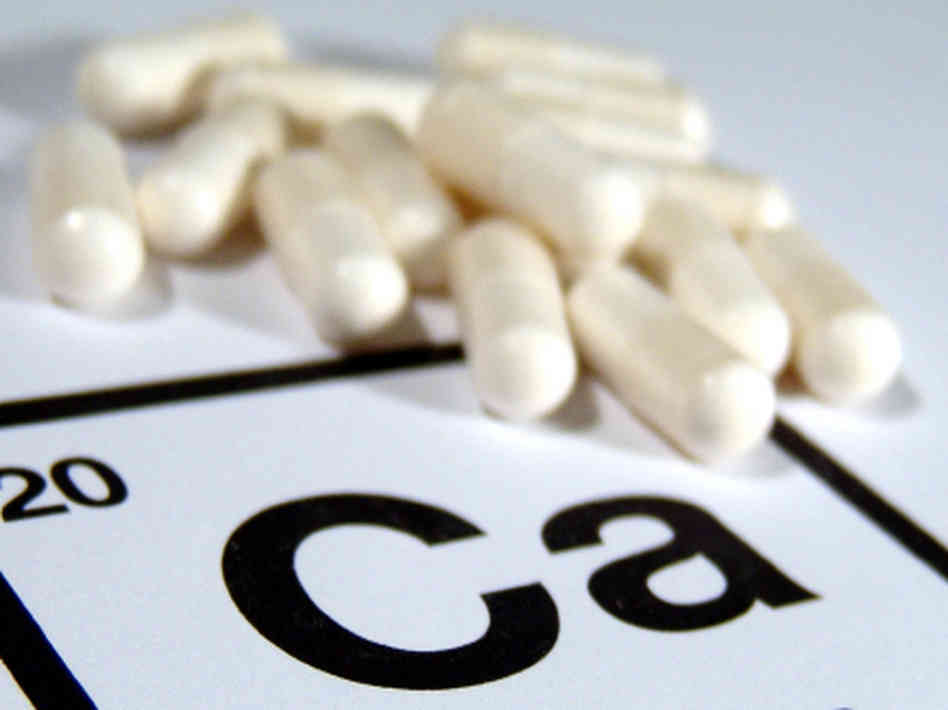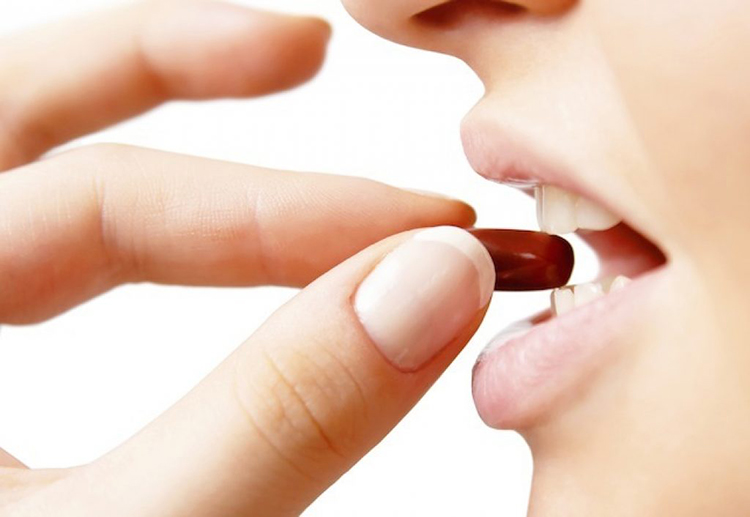
So there you are, changing in the locker room after a solid workout. You can already tell your muscles are going to kill tomorrow and you could probably eat an entire restaurant’s worth of food. You’ve done everything you can at the gym to reach your desired body gains.
Not it’s up to your body to pick up the baton and do the rest. Your body is a well oiled machine, delivering nutrients to cells in need while recovering and rebuilding the muscle tissue you damaged while working out.
Everything else is out of your hands, right?
Well, not exactly. There are still a few ways you can help aid in your body’s recovery following the workout.
With the help of recovery supplements, your body will improve its post workout performance, allowing you to build larger, stronger muscles while prepping itself for future workouts.
Of course, with so many different supplements on the market today, which are best for recovery and help push you toward your desired goals?
We’ve got all the insights and information you need right here.
So before you head off to the gym for your next workout, make sure to read through all of our recommendations on recovery supplements so you can pick up what’s needed. After all, if you’re going to put in the work at the gym, you need to make sure you put in the work at home as well.
The Top Recovery Supplements You Need

Protein Powder
Whether you want to count this as a dietary offering or a supplement, it needs to be in your post recovery routine. When working out (especially when workout out with weights), you put your body through the ringer.
You’ll tear muscle fiber and break it down the more you work it.
As your muscles are made out of protein it is important to build the tissue back up.
Now, one of the most common questions we get is “but I don’t want to bulk up, so I should skip this step, right?”
Wrong.
No, your body needs protein.
Simply consuming protein isn’t going to force you to bulk up. There are a number of different variables at play when it comes to bulking up. You don’t want to go overboard with the protein if you’d like to stay lean. Body builders will often consume well over 100-150 grams of protein. It’s pretty difficult to consume this amount of protein unless you’re trying to.
If you’re trying to bulk up, we suggest around 20 to 30 grams of protein immediately after your workout (if you’ve been on a higher protein diet for some time you can push this up to 40 grams, but if you’re just starting out your body won’t be able to synthesize this amount of protein just yet).
This gives your body an immediate source of protein to begin the muscle recovery process right away. There’s no need to go overboard with the protein here.
If you pick up a protein drink that proclaims it has 60 grams of protein you’re free to drink it, but your body likely won’t be able to use all of it (it’s better to just spread the 20-30 grams of protein servings throughout the day so you hit your desired daily consumption mark).
So if you want to stay lean, opt for 10 or 15 grams of protein post workout and just keep your total protein during the day (such as under 60).
You’ll have enough protein to avoid losing muscle mass without bulking up.

Branch Chain Amino Acid
If your looking for this product, it may be easier to look for it as “BCAA.” This kind of recovery supplement is critical if you’re looking for growing larger muscles. It is made up of a number of branched chain amino acids, including leucine, which is one of the most important amino acids you can consume.
This BCAA alone helps stimulate your muscles while boosting the delivery capability of protein to your damaged muscles.
If you have ever purchased a “recovery beverage” or “post workout supplement” product before, it likely had this BCAA packed into it. It works by synthesizing the protein within your system, delivering it to the muscles.
Basically, it delivers the needed ingredients to your muscles in order to help facilitate muscle growth.
Along with your protein, this is a supplement you want to consume immediately after your workout. It doesn’t do as much good in your system if you want several hours until you consume it.
On top of improving muscle recovery and development, during your workout, you will burn through a number of key chemicals your body produces naturally, including glutamine and creatine.
As your body is pretty much tapped out from these chemicals, it is important for you to replenish it.
This way, it not only helps improve how body’s ability to recover, but it also helps prep your body for tomorrow’s workout.

Creatine
Yes, your body naturally produces creatine. Throughout the day there are different kinds of energy sources you use. When working out, the energy you use for an explosive move is different from the energy you use for a longer more methodical workout. Creatine is used during the explosive moves.
After you finish a set, your body will begin to replenish its creatine levels, but this takes time, so by the time you go for the second set won’t be at a full tank of energy.
Creatine supplements help increase the amount of the chemical that’s already in your body. This way, you’ll have more energy to pump out more sets, which in turn helps you grow larger and stronger.
Because your body uses up its creatine reservoir throughout the course of the workout, you’ll want to help replenish it. Much like you did with the BCAAs, you will want to consume creatine post workout. Ideally, shoot for around three to five grams (if you’re just starting out with creatine, begin with the smaller amount and increase your consumption level gradually).
Consuming creatine earlier in the day, before your workout is desirable, but your body is at peak absorption post workout, so it will take on more creatine at this point of the day.
Generally, you’ll want to take your creatine no later than an hour after the workout.
Now, if you’re following along, you’ve probably noticed there are a lot of powder and beverage based supplements to take here. You have two basic options.
First, you can opt into the flavorless powder. This makes it easier to mix everything together (and combine it with the protein). It’s quick and easy that way.
However, we like consuming each separately.
Why?
Because your body is likely dehydrated, so why not take the chance of consuming several helpings of water?
It is a bit of a personal preference, so do what works best for you and what feels right, but water is critical to aiding you in your body’s gains.

Fish Oil
Surprised to see fish oil on a list for workout supplements?
You may not be seeing people popping fish oil pills at the gym, but it’s important to take one post workout.
First, it is helpful to boosting heart health, so that in itself is one reason why you should be taking fish oil.
However, in terms of working out, it helps fight inflammation.
Your muscles will likely be inflammed following a workout. This is especially true if you just started working out again. If you haven’t hit the weights in a while and you go hard, your body is going to throb tomorrow (and possibly, even more, the next day).
Fish oil is going to help reduce this inflammation.
If you’d like to try something a bit different, you can also go with krill oil. Krill oil is kind of like fish oil 2.0. It delivers more antioxidants and basically has more of what you want. It’s also more expensive. So while krill oil is the real deal and is the supercharged fish oil, you can’t go wrong with the standard fish oil supplement.

Sesamin
Have you ever taken a fat burner supplement before?
These can work in a few different ways, but most are designed to help boost your metabolism, increase energy levels and target fat cells.
However, if you’re someone who downs coffee throughout the day like there’s about to be a coffee bean shortage, adding more caffeine can be a bit problematic and make your heart race. If you don’t have a problem with that go ahead and stick with your fat burner.
However, if you have suffered from that racing heart feeling you should consider sesamin.
What is this exactly?
Kind of sounds like a condiment you’d find at a sushi restaurant, doesn’t it?
Well, it’s actually not far off. Sesamin is a lignan found within sesame seeds.
It helps oxidize your fat cells, which helps your body target these areas for energy consumption over other areas (this will help you avoid your body using muscular protein cells for energy).
Additionally, the supplement tells your body it does not need to store as much fat, which aids your fat burn even further.
Chances are, if you were to look at the label of a fat burner supplement, we’d bet you’d find “sesamin” somewhere on there in the long list of ingredients we all struggle to pronounce.
Well, you can go right to the source with this one.
And best of all, it’s 100% natural, which means you can take it on just about any diet you are currently on.

Magnesium
Have you ever finished a workout (usually a leg workout or lower body based cardio) and, all of a sudden, your calf muscle cramped up?
These calf muscles can be completely brutal. If you’ve had one before you know exactly what we mean. When the muscle just turns into a complete brick and you can see it ripple. It’s one of those things you can semi-massage and just wait for it to run its course.
But there’s also a way to prevent these kinds of cramps: increasing your magnesium intake.
When you workout you’ll burn through magnesium within your body. During a workout you’ll sweat out magnesium.
Additionally, your body uses magnesium for just about everything else you’re doing at the gym, including protein synthesis and improving your blood glucose control.
As your body begins to tap out of magnesium you increase the risk of cramping. By popping a magnesium supplement following your workout you’ll help replenish the magnesium you burned through during the workout.
It will also cut down on those painful cramps (and if you are someone who regularly experiences leg cramps, you may want to add magnesium supplements to the beginning of your day as well).

ZMA
Taking ZMA (short for zinc, magnesium aspartate and Vitamin B6) is going to help increase your anabolic hormone levels. During your workout, you are going to draw on testosterone to lift. It’s why some will take testosterone boosters to help increase their performance. The added testosterone can help improve muscle development and size.
If you want to add that supplement to your diet you can. ZMA increases your testosterone level naturally as it is your body’s own testosterone. It’s not technically a “booster,” although it does help you maintain a higher level while training.
This, in turn, is going to not only help increase your muscle size but it will speed up your recover time, which is why you should consider taking it post workout.
In Conclusion
In order to boost your recovery potential, you need to fuel your body with the right kind of nutrients and supplements. Recovery supplements aid your body in what it already does.
Basically, it takes your body’s capability and maximizes the potential. From repairing damaged muscle tissue to delivering more oxygen and nutrition to your body, there are plenty of ways you can improve your body post workout.
These are just some of our favorite recovery supplements, no matter what kind of body you want or what your ultimate fitness goals are.
-Terry Asher










[…] via- https://gymjunkies.com/recovery-supplements/ […]
[…] post Recovery Supplements appeared first on Gym […]
great, thank you for sharing information, i like your blog
[…] muscle injuries, following a workout your muscles will be sore and inflamed. You want to improve recovery from this inflammation. This will help improve your ability to return to the gym and to get more […]
[…] muscle injuries, following a workout your muscles will be sore and inflamed. You want to improve recovery from this inflammation. This will help improve your ability to return to the gym and to get more […]
[…] see this on supplements often listed as BCAAs. These branch chain amino acids will help your body recover faster by expediting the process of delivering the necessary protein, blood and oxygen to the […]
[…] to get the most out of your workout is to supplement. As an athlete you’re likely already taking supplements, but if you’re not we can help give you some basic pointers for what you need to be […]
[…] to get the most out of your workout is to supplement. As an athlete you’re likely already taking supplements, but if you’re not we can help give you some basic pointers for what you need to be […]
[…] to get the most out of your workout is to supplement. As an athlete you’re likely already taking supplements, but if you’re not we can help give you some basic pointers for what you need to be […]
[…] means that brown rice protein powders are awesome post-exercise recovery supplements. While rice protein is already digested easily, powders that distribute evenly in exercise drinks […]
[…] means aiming for around one hour after your workout, as the creatine can quickly replenish your taxed muscles. This will promote recovery, making your muscles less sore during your next […]
[…] and nutrition. It is crucial that we train for a stimulus our body is trainable for and can recover from. Of course, with a synchronized nutrition plan. With this in place, the rest of the body also […]
[…] in the beginning, we should focus on choosing the right type of training our body can tolerate and recover from. With the first goal in mind simply being a healthy diet and getting rid of […]
[…] amount of physical activity you can exert decreases, your performance in the gym is worse, and your recovery rate is also […]
[…] amount of physical activity you can exert decreases, your performance in the gym is worse, and your recovery rate is also […]
[…] amount of physical activity you can exert decreases, your performance in the gym is worse, and your recovery rate is also […]
[…] be hitting the program right on the nail. Sticking to the diet plan as you are supposed to, and recovering […]
[…] the beginning, we should focus on choosing the right type of training that our body can withstand recover from Keeping the first goal in mind, just having a healthy diet and getting rid of […]